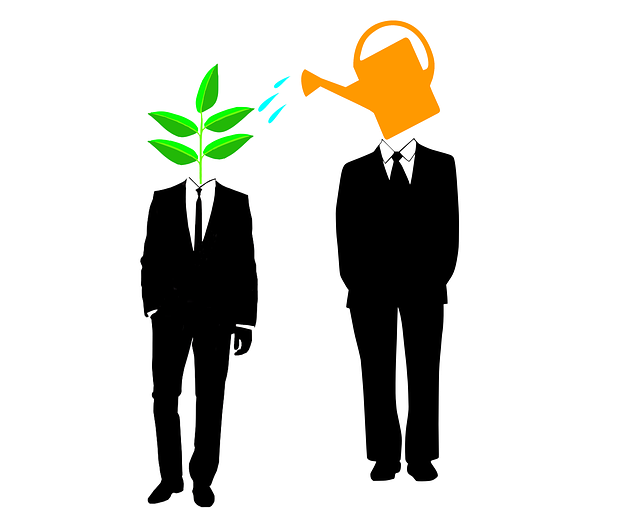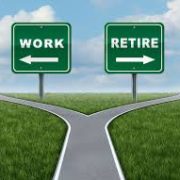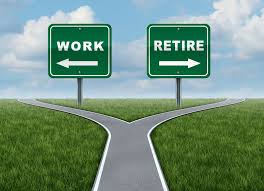How would you describe your last 80 years in this world? Some advice for 40+ year olds (and maybe some other 80-year olds).

I penned this article 20 months ago on Quora.com before number 80 happened. There’s been about 90,000 “Mikeys” that have liked it so far and since today is, in fact, my 80th birthday, I felt it appropriate to tune it up and share it with this tribe.
I think 80 years earns the right to provide some insight. So here goes.
For starters, my first 80 years are exactly like yours in one respect. It has been an ongoing series of choices and continues to be. I am where and what I am as the result of the accumulated choices I have made over the course of my life. And it will end up based on the choices I make going forward.
I’ve been fortunate to have started life without any “blueprint errors” so I wasn’t encumbered with any physical or mental limitations. Nor did I have a “silver spoon” growing up.
I guess you could say my life has been a low-drama adventure – probably like most lives. Lots of twists and turns mixing tranquility with chaos and considerable unpredictability with more than my share of attempts to control the uncontrollable.
I’m an escapee from rural Wyoming and a town of 800 with a high-school graduating class of 12. I’ve spent more time steering a Farmall tractor in circles, snuck into more drive-in theaters, raided more gardens, killed more rabbits for spending money, and driven more cars that didn’t have turn-signals and seat belts than most.
My college experience was stretched over nine years and three different majors, all paid for on my own by working 2–3 jobs. My wife of 51 years liked the way I served her food as a hasher at her sorority house and that I was an entertainer/guitar player on the weekends, that I wore sport coats to class, and didn’t buy the phony frat boy bit.
Oh, and the ’65 Chevy Malibu SuperSport, 300hp, four-on-the-floor helped a little.
So I fooled her into a marriage fully aware that I was marrying way over my head.
Our early married life experienced a hiccup – our first son was born severely brain-damaged from an undetermined pre-natal event and succumbed 16 months later, 11 days before our daughter was born.
It was a major factor in helping us both build resilience that sustains us today.
I forged ahead doing the “getta” thing: getta degree, getta job, getta wife, getta mortgage, getta fenced- yard, getta family, 2.5 kids and golden retriever, getta mini-van, getta title, getta 401K.
I was a poster boy for chasing the “linear life plan” i.e. the 20–40–20 life-cycle model that most still succumb to – 20 years of education, 40 years of work building someone else’s dream followed by 20 years (hopefully) of “nirvana” called retirement.
Some refer to it as the “learn-earn-retire-die” model.
I had begun to question the concept of retirement in my 40s as I immersed myself more in the self-development world where I discovered that retirement was never a consideration for most high-achievers. It appeared to me that most of the longest-living humans remained in the creative process rather than retire – a word derived from the French verb “retirer” which means “withdraw.”
So, I’ve chosen not to retire but to remain in the “creative process” as long as I can. I’ve set the goal of living to 112 1/2 knowing that my chances of getting there are pretty slim because of early marginal health habits. But I know that by setting the goal I have a much better chance of getting there than if I just settle for living out the average lifespan of the American male which is somewhere around 78 and declining.
See – I’ve beaten it already!
I left the 20–40–20 track at age 60 and started my own business as an executive recruiter after 32 years of wandering through the desert of corporate employment. I learned, by starting a business that I knew nothing about and was under-prepared to start, that I’m not the entrepreneur I thought I would be and that it’s not the glamorous world people think it is.
The last 20 years have been the most challenging, enlightening, and gratifying part of the 80-year journey and the part of the journey from which I can draw advice worthy of consideration for a 40-year old.
Here are the cliff notes from the last 20 years:
- I moved from near millionaire status on paper to an embarrassing fraction of that following three market crashes and draw-down to support my business.
- Son and daughter launched, rewarded with three wonderful grandkids.
- Late-life discovery of my core strengths and realization that my 32 years invested in corporate life was a mismatch with my true talents.
- Acknowledged a talent and drive to help people struggling with major life decisions, especially those at or beyond mid-life.
- Became a dedicated student of understanding how our minds and bodies work; read over 900 books on self-development, health and wellness, brain development, positive psychology.
- Resurrected a latent talent as a writer and chose to finish out by putting that skill to work along with my ability to help guide others to better mid-life decisions.
So life today is a mash-up of recovery from mistakes, acknowledgment of innate ability, some victories, and a modicum of acquired wisdom from all of the above. I can honestly say that I experience “eudaimonic happiness” (see this article) and am at the happiest and healthiest point in my life having been able to apply some of the voluminous knowledge and experiences that I have accumulated through my life.
How would I advise a 40-year old?
Let’s think in big buckets – the buckets that are foundational to success, health, longevity, and purpose in life.
Bucket #1: Get serious about and take control of your health. Nothing counts for anything if you don’t feel good. As Americans, we do a pretty shitty job of protecting our health. Candidly, we are surprisingly illiterate when it comes to understanding how our minds and bodies work.
If we did understand, would
- we take 35% of our meals through the side window of our cars?
- we weigh 20 lbs more on average today than in 1980 without being any taller?
- 50% of our population today be pre-diabetic with 70% of those not knowing it (CDC report)?
- would our longevity curve be receding instead of continuing to progress?
We know there is no biological reason that we shouldn’t live to 100 or beyond. Our “whole-life benchmark” has already been set at 122 years, 164 days because Jeanne Calment of Paris made it that far. So we know the body can last that long. Yet, on average, in America, we achieve only 66% of that potential.
Why the gap? In a word: lifestyle. The five major killers in our culture – heart disease, cancer, stroke, diabetes, and dementia – have not changed in decades. They are lifestyle diseases and all are preventable.
Our poor diets, sedentary living, and increasing isolation are killing us early – we continue to “live too short and die too long” with late life for many composed of extended morbidity and early frailty.
Become a student of your mind and body and start now to understand how your body works at the cellular level. With that awareness, you will be able to put in place a lifestyle of good health-inducing habits that will bode well for a mid-life and beyond that is energetic, long, and meaningful.
It’s also important to remember that we, in America, are encumbered with a healthcare system that is broken and not exactly an ally in this quest. It operates on the principle of “cure” and not “prevention.” It’s a disease-care system that is trained to “drug it or cut it out” and “mop up the water without turning off the spigot.” It is reactive, not proactive. It’s up to you to be proactive and take charge of your health and partner with your physician and not let him/her be the arbiter of your health.
One of the best pieces of advice I can pass on is to encourage you to read what many consider one of the most transformational books ever written when it comes to achieving good health. It’s called “Younger Next Year”, co-authored by Chris Crowley and Dr. Henry Lodge. It’s a book that has impacted many lives. In fact, Bill Gates, who has read a book a week forever, considers it one of the most impactful books he’s ever read.
Applying what this book can teach you, your life curve can look more like this:
Bucket #2:
Discover your strengths and be the author of your life. Chances are high that you came through your formal education without fully understanding what your deepest strengths and talents are. You were plopped into a classroom with 30 other “victims” and forced to learn what an outdated educational system continues to say is best for you – so that you can fit into and conform to the aforementioned 20–40–20 learn-earn-retire model that still prevails. It’s likely you have gotten this far having not chosen the base materials of who you really are.
We all have within us an “essence”, or what German psychiatrist Carlo Strenger calls our “thus and no other”, a something born in each of us that is “recalcitrant to change.” It’s that inner dream that gets tamped down and barnacled over by the educational system, the advice of the influential “P’s” in your life (parents, peers, professors, politicians, and pundits), much of corporate employment, and the pressure to conform.
I know of what I speak. Although successful by cultural standards of title, status, and income while in the corporate world, it wasn’t until I was in my sixties that I finally acknowledged that I was operating outside of my “base materials” or “core strengths and talents.” I ignored or refused to accept the feedback that I got from several personality- and strengths-assessment tests that I took – because they didn’t align with my belief of what the culture expected. The tests said, in every case, that I should be in a learning-teaching environment where my natural, but undeveloped, ability to write and speak could flourish.
I began to move in that direction in my mid-sixties and the journey continues.
So, if you haven’t, start now to identify and acknowledge your strengths, how you are wired up, what your “thus and no other” is, and move toward it. It’s not too late to be the true author of your life. As NPR journalist and author of “Life Reimagined: Ths Science, Art, and Opportunity of Midlife” Barbara Bradley Hagerty states:
“- change within the boundaries of your natural talents, proclivities, personality traits, and skills.”
Invest in, and take seriously, assessments such as Strengthsfinder, Enneagram, Myers-Briggs, DISC. Work with a career coach or life coach.
Ask yourself a couple of questions: (1) Would I continue doing what I am doing for no pay? (2) If time and money were not a factor, what would I be doing?
At forty, you are a mid-career professional or close to it. You’ve lived enough years and have enough of a biography of successes and failures that you should know enough about what you excel at, what you don’t do well, what energizes you, and what you dread. All this can guide you to this next stage.
Bucket #3:
Dispose of the retirement mindset. My position on this is, admittedly, controversial. Over the last 5–6 decades, the concept of a “labor-to-leisure”, “vocation-to-vacation” retirement has become so entrenched in the psyche of the western world that to assault it is heresy. But assault it I will – with several things that a 40-year old should consider as they move into the second half of life.
Here are a few simple facts about retirement as we’ve come to know it:
- Retirement is an unnatural act that doesn’t exist in nature and didn’t exist anywhere on the planet 150 years ago. Have you ever seen a retired coyote or maple tree? This unnatural act started in Europe in the late 1800s by Otto Von Bismark for purely political reasons and was picked up by FDR in the U.S. a half-century later, again for political reasons. The arbitrary selection of 65 as a retirement age (at a time when the average lifespan was 62) established an artificial line that was irrelevant then and even more irrelevant now.
- The statistics behind traditional retirement are not encouraging. IBM determined a couple of generations ago that the average number of pension checks issued was 24. Our Social Security system, in 1995, determined that the average number of social security checks issued was 29. Shell Oil studied thousands of its employees and found that retiring at 55 doubled the risk for death before reaching 65 compared to those who worked beyond age 65. Depression, suicide, and divorce rates are higher amongst retirees than non-retirees.
- With our frontal cortex capability, we have dreamed up a concept that goes against our biology. We have one of two biological choices – grow or decay. It’s in our cellular structure. Traditional retirement draws us to sedentary living, withdrawal from work, increased social isolation, and reduced learning – all things that go against the way we are wired up biologically i.e. our body’s “grow or decay” mechanism. That’s all we need to know to explain why we still “live too short and die too long” in our society when, in fact, we should “live long and die short” or “die young, as late as possible” as stated earlier.
Bucket #4:
Own your career and never stop learning. Continue to refine and deepen your skills within and outside of your career path.
Repeatedly, I have worked with folks in the late 40s or 50s who have struggled to re-enter the job market after being blindsided by a layoff or other type of termination. Often it’s due to the fact that they have made no attempt to continue to enhance or learn new skills throughout their career.
Many of these hapless victims clung to the 20th-century illusion that their company has their interests at heart and will nurture them along. This is a dangerous thought pattern.
Don’t be fooled into thinking that your employer has your interests at heart. They don’t. They are always guarding their own self-interests.
Master Certified Career Coach, Janine Moon, in her book “Career Ownership” emphasizes the importance of career ownership in the face of both the magnitude and the accelerating pace of change occurring in our global economy.
Here are a few “wise” questions that she suggests a 40-year old should be asking themselves:
- When did you last do serious research to educate yourself about the future of your industry and the skills needed to succeed in this changing marketplace?
- When did you last assess your skills, abilities, and goals to determine how you could get the most satisfaction out of the workspace in which you spend many of your waking hours.?
- When did you last write out your 3-year career plan (on your own) along with your 12-month learning plan?
- When did you last devote personal time and funds to upgrade your own skills?
- When did you last consider requesting a job rotation that would help you build a relationship and impact your marketability inside or outside of your organization?
- When did you last review and align yourself with your organization’s top two strategic growth areas?
- When did you last identify a weak area in your skills or performance and take personal responsibility to address the problem?
As Americans, we don’t have a good track record as continuous learners. For instance:
- Approximately 39% of high school never read another book after graduation.
- Approximately 42% of college graduates never read another book after graduation.
- 95% of books read in the U.S. are read by 5% of the population.
Read, read, read. It’s key to avoiding irrelevancy and becoming a dinosaur. Stay in the learning process all your life. You’ll find that it isn’t crowded in that space. But it will bode well for both your career and your mental health.
It’s been an interesting ride – and continues to be interesting. I hope it stays interesting until the universe decides to take the parts back (and that it decides to make that REAL quick – no loitering in extended morbidity for me!).
Any of you “been there, done this?” I’d love to hear your stories. Share ’em with a comment below.









